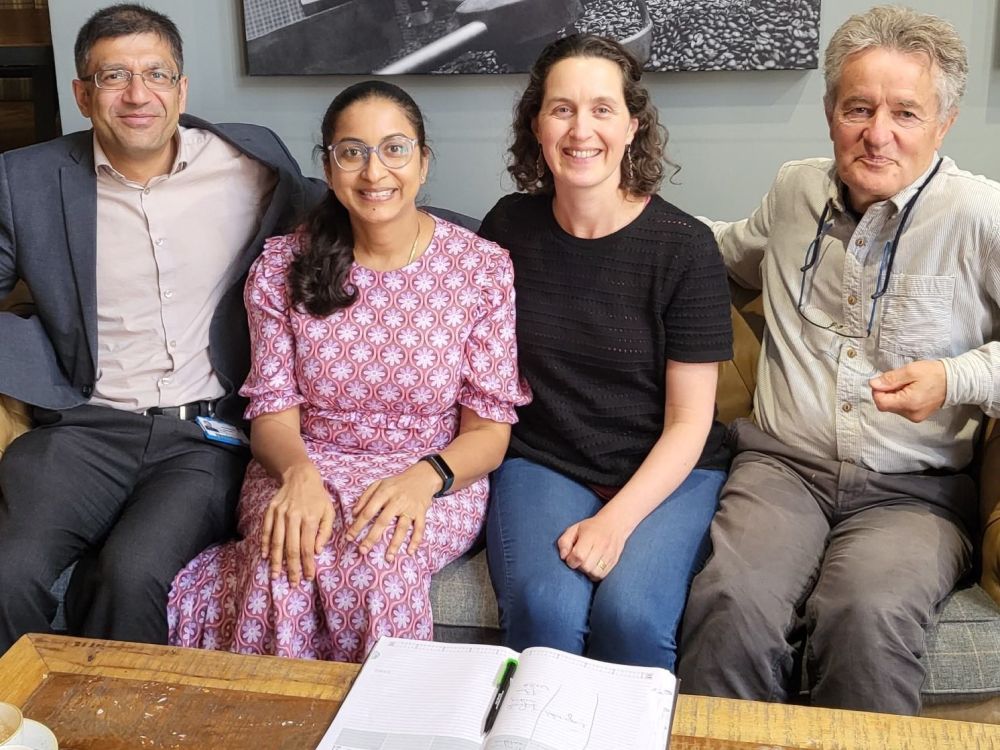By Dr Vishal Aggarwal, Clinical Associate Professor in Acute Dental Care and Chronic Pain, School of Dentistry, Faculty of Medicine and Health
The use of antibiotics for dental issues such as toothache is likely a key driver of antimicrobial resistance in India and across the world.
Southeast Asian regions like India have the highest risk of development and spread of antimicrobial resistance (AMR) due to very high rates of antibiotic use.
It’s unclear to what extent dentistry in India is adding to the spread of AMR, but a project we are working on is assessing its impact, developing guidelines for dentists, and working with stakeholders to develop interventions.
Our multi-disciplinary team includes Professor John Walley and Dr Rebecca King at the Nuffield International Centre and PhD student Aarthi Bhuvaraghan who is undertaking the research as part of her thesis.

The team have already done a systematic review to investigate the burden of antibiotic use in dentistry in India and followed this with a document analysis review of Indian policies on dental antibiotic prescribing and stewardship.
We found high levels of inappropriate antibiotic prescribing by dental practitioners in India for both therapeutic and prophylactic reasons.
In many instances dentists are not conforming to global gold standards on prescribing.
Our document analysis identified no guidance documents or continuing professional development (CPD) materials on antibiotic prescribing for dental practitioners nor any other Indian policy documents on dental antibiotic stewardship.
The Indian undergraduate dental curriculum also had little information on antibiotic prescribing and no mention of resistance or stewardship.
These findings show there is an urgent need to target antibiotic misuse in dentistry in India.
To address this gap, we are developing and evaluating an intervention to help dental practitioners in India prescribe antibiotics appropriately for dental conditions.
The intervention will include, but will not be limited to, a desk guide, continuing professional development and undergraduate modules on management of acute dental conditions and appropriate antibiotic prescribing for dental conditions.
Our current findings mirror those from medical facilities worldwide and show that dental antibiotic misuse is likely a key driver of AMR.
Potential impact
We are now developing an intervention informed by findings from our systematic review and document analysis. By incorporating community engagement methods into our work, we aim to co-produce interventions with dental stakeholders to ensure acceptability, sustainability and scalability.
So far work has led to an international partnership with Bharat Institute of Higher Education and Research (BIHER).
Through this network we hope develop interventions, teaching and CPD modules for the Indian dental curriculum which will support appropriate management of patients presenting with acute dental conditions and reduce harm to patients because of inappropriate antibiotic prescriptions.
This work has the potential to impact global AMR policy for the optimal use of antimicrobials in dentistry.
We also hope that such work can reduce the AMR burden in the Indian dentistry community through appropriate antibiotic use for dental conditions which is likely to be scalable to other Low and Middle Income Countries (LMICs), particularly in the Southeast Asia Region.
Publications
- Bhuvaraghan A, King R, Larvin H, Aggarwal VR. 2021. Antibiotic Use and Misuse in Dentistry in India—A Systematic Review. Antibiotics. 10(12)
- Ahmed I, King R, Akter S, Akter R, Aggarwal VR. 2023. Determinants of antibiotic self-medication: A systematic review and metaanalysis. Research in Social and Administrative Pharmacy
- Bhuvaraghan A, King R, Larvin H, Aggarwal VR. Dental antibiotic stewardship, policies and implementation- a document analysis in India. Journal of dental research. (Under review.)
Picture credits
Thumbnail of pill packets by Roberto Sorin on Unsplash.
AMR@Leeds event
The AMR@Leeds network will be hosting an in-person event on 19 June 2023, 10am to 3pm.
The event will focus on how the University of Leeds can come together to advance research on antimicrobial resistance.
More information will be shared on the AMR@Leeds website and the AMR@Leeds Twitter account @AMRatLeeds closer to the event.